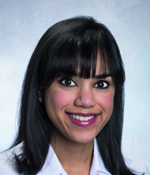
The value of peer group support to health care workers in sustaining personal resilience was described in ACLP News mid-pandemic by Ashwini Nadkarni, MD, director of faculty well-being at the department of psychiatry, Brigham and Women’s Hospital. As the impact of COVID-19 begins to recede, here Dr. Nadkarni discusses how we and our colleagues can adapt and recover.
As the pandemic begins to recede…
Practical Strategies for Recovery
The hope that comes with rising numbers of people vaccinated and falling numbers of those newly infected is prompting many of us to contemplate how we might adapt and recover post-COVID-19:
- What will it be like to work as a C-L psychiatrist when our experiences with the virus have indelibly influenced the nature of our work?
- How are our patients processing the experience of coming out of an extended lock-down?
One major shift in clinical care is how we adapt to the comprehensive implementation of telehealth. Whether it’s virtual clinical care or virtual meetings, we have all become accustomed to display screens marking the boundary of our communication with each other.
In both my roles as a director of wellness and my clinical work as a collaborative care psychiatrist, I have received extensive feedback that both colleagues and patients consider the full-scale transition into telehealth to be a major advance—one that they would choose to continue with, rather than a forced adaptation.
Patients appreciate the time opening up in their busy lives from avoiding commutes to clinics. Clinicians have voiced greater flexibility and control over their schedules.
While Centers for Disease Control and Prevention guidelines on social distancing and vaccination rates may inform most recommendations on return to in-person work, maintaining telehealth could still be a means to address burnout.
C-L psychiatrists hoping to boost professional fulfillment might survey faculty on whether maintaining videoconferencing for meetings adds to flexibility. Grand rounds lectures through a virtual medium may enable C-L psychiatrists with greater family responsibilities to contribute academically without sacrificing travel time and expense.
Opportunities arising for work-life balance from the pandemic may require some adjustment to enhance humanization (and diminish Zoom fatigue!) but they are opportunities nevertheless.
Another key concern as we move into recovery is processing the losses that both our colleagues and our patients have endured. Emerging from lockdown is a much-anticipated change but unlikely to subtract the grief that people have experienced.
A developing body of literature has examined the impact of traumatic and general stressors related to the pandemic.
Traumatic stressors include severe illness, hospitalization, witnessing death, or death of a loved one, and extreme exposure to COVID-19. General stressors include COVID-19 exposure, and quarantine related to exposure, social isolation, employment or income loss, working from home with kids, being a caregiver, and inadequate personal protective equipment.
The generalizability of these stressors is a painful reminder of how global suffering is likely to be. Virtual training in positive psychology and mindfulness meditation, and tips to maintain healthy exercise, eating, and sleep habits are all useful programs to consider providing to clinicians and incorporating into clinical practice.
Another intervention is narrative medicine—the use of reading of literature and reflective writing that examines four central narratives within medicine:
- Physician and patient
- Physician and self
- Physician and colleagues
- Physicians and society.
Through such reflective storytelling, C-L psychiatrists can better empathize and care for their patients, enhance connectivity among colleagues, but also ignite discourse on key topics in health care within the public setting.
To implement a narrative medicine class for colleagues, C-L psychiatrists can consider models often implemented in medical school and residency training programs.
Throughout a one-year or six-month cycle, classes are scheduled bi-monthly or monthly. Sessions are led by an expert in narrative medicine and combine didactic experiences based on group discussions of existing literature with the opportunity to develop one’s own work.
Narrative medicine rebuts the stoicism that has come to define medical culture but also offers a professional forum in which to promote healing.
The suprachiasmatic nucleus makes it possible for increased sunlight to go hand-in-hand with hope. But, as we contemplate recovery, it helps to have hope grounded in an understanding of the challenges faced by colleagues and patients alike—and hope that incorporates practical strategies for the way forward.
Wesley T, Hamer D, Karam G. Implementing a narrative medicine curriculum during the internship year: An internal medicine residency program experience. Perm J 2018;22:17-187. DOI: https://doi.org/10.7812/TPP/17-187
Charon R. Narrative Medicine: A Model for Empathy, Reflection, Profession, and Trust. JAMA. 2001;286(15):1897–1902. DOI: https://doi.org/10.1001/jama.286.15.1897
« « All 2021 ACLP News « April 2021 ACLP News

